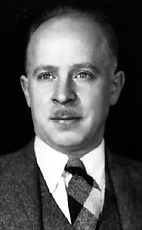- Fred Rose (politician)
Infobox_Politician

name = Fred Rose
caption =
birth_date =December 7 ,1907
birth_place =Lublin ,Poland
death_date =March 16 ,1983
residence =Montreal ,Quebec
office = MP for Cartier
term_start =August 9 ,1943
term_end =January 30 ,1947
predecessor =Peter Bercovitch
successor =Maurice Hartt
party = Labour Progressive
religion =
occupation =Fred Rose (born Fred Rosenberg) (
December 7 1907 -March 16 1983 ) was aCommunist politician andtrade union organizer inCanada . He was born inLublin in what is nowPoland , and emigrated to Canada as a child in 1916. He became involved with theYoung Communist League of Canada , and then joined theCommunist Party of Canada while working in a factory. However, he is best known as the only Member of the Canadian Parliament ever convicted of spying for a foreign country.Rose was jailed during the 1930s for his work organizing the unemployed, and won the hatred of
Quebec premierMaurice Duplessis for writing about the close connections between the Duplessis government and the fascist governments ofAdolf Hitler andBenito Mussolini . He was a close associate ofDr. Norman Bethune , who served first inSpain during theSpanish Civil War and later inChina . He was a candidate for theCommunist Party of Canada in theworking class Montreal -area riding of Cartier in the 1935 federal election, coming in second with 16% of the vote.Early in
World War II , the Communist Party in Canada was formally banned, then reorganized as theLabour Progressive Party . Rose, who was Jewish, won election to the House of Commons as an LPP candidate from Cartier in a 1943by-election . He won with 30% of the vote in a tight four way race, beating among others, David Lewis of the social democraticCo-operative Commonwealth Federation (CCF). Rose was re-elected in the 1945 election with 40% of the vote. Most of the riding's immigrant Jewish population voted for Rose, who benefitted from the perception that the Soviet Union was the main hope for saving Europe's Jews from Hitler; his main rival, Paul Massé, of the anti-war Bloc Populaire, who came second, was supported by the French Canadian population of the constituency. As a Member of Parliament, Rose proposed the first medicare legislation and the first anti-hate legislation.Fred Rose was caught up in the world political sea change following World War II, when seemingly overnight, the
Soviet Union went from ally to enemy. In July 1945,Igor Gouzenko , a youngcipher clerk in the Soviet embassy inOttawa , was recalled to his homeland. Rather than return home, Gouzenko defected with documents he claimed showed evidence of a massive Sovietspy ring operating in Canada.Few took his accusations and evidence seriously at first. Later, as the
Cold War began to heat up, a Royal Commission on espionage was established, headed by two Supreme Court justices. Scores of people were rounded up under the "War Measures Act " (even though Canada was at peace), held incommunicado for weeks on end, without legal counsel and barred from all contact with the outside world. Meanwhile, the Royal Commission issued a stream of press releases about the "Red menace ". Prisoners were forcefully told to incriminate themselves and others under the penalty of contempt of court.Fred Rose was the ultimate target, although the charges against him were non-specific, making his defence difficult. At one point, he was defending himself against conspiracy, and at another against violating the "
Official Secrets Act ".In this charged atmosphere, Rose refused to testify at his trial, which was designed, he said, to "smear honest and patriotic Canadians". Rose denied his guilt to his death. Nevertheless, he was sentenced to prison for a term just one day longer than was required to deprive him of his elected seat in the House of Commons.
Rose wrote to the
Speaker of the House ,Gaspard Fauteux , onJanuary 24 ,1947 :::"Mr. Speaker: If the will of the people is to prevail, if justice is to be done, there can be no question of my expulsion from the house. To the contrary, I should be in my seat in the House of Commons and not in the penitentiary. Parliament is the highest of Courts. Through its actions in my case it will decide whether hysteria is to continue or whether reason and justice are to prevail. Respectfully, Fred Rose, M.P."
His letter was returned to him at
St. Vincent de Paul Penitentiary , and his fellow MPs never read this appeal. OnJanuary 30 ,1947 , he was expelled from Parliament.Rose was released from prison after four and a half years with his health broken. Attempting to find work in Montreal, he was tailed from jobsite to jobsite by the
Royal Canadian Mounted Police (RCMP), who pointed out to employers and workmates that he was a convicted spy.He finally went to Poland to attempt to set up an import-export business and to obtain health treatment he could not afford in Canada. While living in Poland, his Canadian citizenship was revoked in 1957, and he was unable to return to Canada to lead the fight to clear his name.
His appeal against revoking his citizenship was denied, although several years later
Ellen Fairclough amended the "Citizenship Act " with theFred Rose amendment so that such a removal of Canadian citizenship could never happen again. Years later, former federal cabinet ministerAllan MacEachen acknowledged the pages of Prime MinisterWilliam Lyon Mackenzie King 's diary dealing with Rose had gone missing, as had most of the other records dealing with his case.External links
* [http://www.parl.gc.ca/information/about/people/key/bio.asp?lang=E&query=3056&s=M Synopsis of federal political experience from the Library of Parliament]
* [http://archives.cbc.ca/IDCC-1-71-72-176/conflict_war/gouzenko/ Fred Rose obituary]CBC Television report reviewing Rose's life. Aired March 19, 1983.
* [http://www.pcq.qc.ca/ Communist Party of Quebec]
Wikimedia Foundation. 2010.
